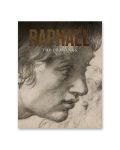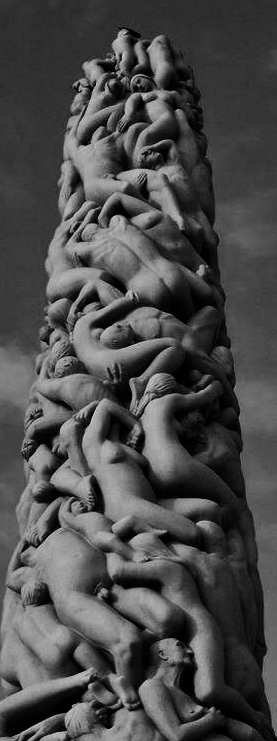Vladimir Nabokov

CONTINUED FROM HERE: https://dflewisreviews.wordpress.com/2018/10/06/collected-stories-vladimir-nabokov/
Part Two of my review of The Collected Stories of Vladimir Nabokov – as continued in the comment stream below when I read them…

www.nemonymous.com
Des Lewis - GESTALT REAL-TIME BOOK REVIEWS
A FEARLESS FAITH IN FICTION — THE PASSION OF THE READING MOMENT CRYSTALLISED — Empirical literary critiques from 2008 as based on purchased books.


 5 & 6
5 & 6 14 – 17
14 – 17

 ”Lucy Locket lost her pocket. Kitty Fisher found it.”
”Lucy Locket lost her pocket. Kitty Fisher found it.” THE HEAD
THE HEAD You can easily imagine what these places were like, these places and their landladies. My own grandmother also had a needle though her fag. The Reggified narrator here was one such actor. A place where stayed, too, the eponymous midgets who often played Snow White’s dwarves (a group named after their non-midget manager). Imagine the shenanigans of hiding-seek games and i think then you would have no need to read this classic story of apolitical-incorrectness comparing midgets with dwarves, and the subsequent freakish haunting after a certain fracas in a pub between the two competing groups of midget and dwarf actors. May i send sympathies to the Reggified narrator. And, oh yes, to the landlady involved, too.
You can easily imagine what these places were like, these places and their landladies. My own grandmother also had a needle though her fag. The Reggified narrator here was one such actor. A place where stayed, too, the eponymous midgets who often played Snow White’s dwarves (a group named after their non-midget manager). Imagine the shenanigans of hiding-seek games and i think then you would have no need to read this classic story of apolitical-incorrectness comparing midgets with dwarves, and the subsequent freakish haunting after a certain fracas in a pub between the two competing groups of midget and dwarf actors. May i send sympathies to the Reggified narrator. And, oh yes, to the landlady involved, too.  We see a near-death or temporary-actual-death experience through an actor’s eyes, as he tells us his life story, his fascination with theatrical productions, theatrical tradition and the theatres themselves, their sinister atmosphere when empty, his closeness to his mother which is germane to the visions he describes, the learning by rote and meaning with the lack of control in delivering the correct lines or the wrong ones, and much else. The visions follow an accident during a performance as Sydney Carton in Tale of Two Cities, a rollercoaster ride for the reader, where the theatre audience almost becomes a Cthulhu monster, sometimes summoning elements of the Concert Hall scenes in Ishiguro’s ‘The Unconsoled’ and of VanderMeer’s ‘Annihilation’ and of something crucially unique that will live with you forever, for however long forever lasts.
We see a near-death or temporary-actual-death experience through an actor’s eyes, as he tells us his life story, his fascination with theatrical productions, theatrical tradition and the theatres themselves, their sinister atmosphere when empty, his closeness to his mother which is germane to the visions he describes, the learning by rote and meaning with the lack of control in delivering the correct lines or the wrong ones, and much else. The visions follow an accident during a performance as Sydney Carton in Tale of Two Cities, a rollercoaster ride for the reader, where the theatre audience almost becomes a Cthulhu monster, sometimes summoning elements of the Concert Hall scenes in Ishiguro’s ‘The Unconsoled’ and of VanderMeer’s ‘Annihilation’ and of something crucially unique that will live with you forever, for however long forever lasts.
Another story I couldn’t really grapple with. But an interesting use of the first person plural narrator.
“Shine and shade speckled the depths of the forest: one could not separate the pattern of tree trunks from that of their interspaces.”
A wonderful tale of a disappointing day, a portrait of boy Peter’s journey in an open carriage to a sort of Le Grand Meulnes aura with his grown up sister, then placed with the other children to play all manner of games before the picnic. Including a cat and mouse sort of hide and seek game that absconded with the day and its events and his hopes. And the low key bullying he received; I somehow feel I am a poseur, too. Especially when amid the hiding and seeking of Gestalt real time reviews…a Zeno’s paradox of unrequitedness.
“One had to accomplish that journey all alone, coming ever nearer, endlessly nearer, while entering gradually the visual field of many eyes.”
“Everything was as it should be: gray tints, the sleep of substance, matter dematerialized.”
The perfect masterpiece of a museum visit. Mixed with the constructive madness written by a madman about a sane man, as apotheosised later by Ishiguro’s ‘The Unconsoled’ (my review here) arriving at some sort of Narnian outcome beyond the museum! And his Russian paranoia of the time. And the scientifically indeterminate object from Kiernan’s ‘Far From Any Shore’ (reviewed yesterday here). “To dig in the past. […] a dirty bathtub,…”
“That was the pattern of his life — a life that made little sense — the meager, vapid existence of a third-rate Russian émigré.”
But such a book’s generalism betokens here an unmissable miracle of a story beyond the realms of the ordinarily vapid or meagre, telling of a man who as a child dreamed he would die at the age of 33 and gears his life, via its enveloping angst, towards avoiding such a fate. Couched in a style that flows like Proustian syrup with many constructive congeries of conceits and coincidences. And an airship. The ending is genius.
“The folly of chance is the logic of fate.”
“, between the trunks, as though through my fingers, the mirror of a half-open wardrobe…”
A mind-riving, reverse-Narnian deliriumorama of the jungle, life on death’s cusp, as three people — interacting with mostly unspoken backstories, and with their native porters — are bug or butterfly hunting with a dreamcatcher net or two. One is called Cook, a Shakespearean clown. Gregson, the narrator’s friend, had an “old cook” in his backstory. The narrator him- or herself somehow survives the story despite losing his or her notebook. Terra incognita indeed.
“You often feel that you remember someone vividly and in detail, then you check the matter and it all turns out to be so inane, so meager, so shallow – a deceptive façade, a bogus enterprise on the part of your memory.”
Turns out later, if it is connected as part of some fraternal gestalt, to be the word ‘Joker’ gradually remembered in a memorable description of such a piecemeal feat of memory. All framing a reunion of Russian brothers in Germany, after one left Russia Year’s ago and the other didn’t. An embarrassing reunion of strangers, with alcohol fuelled device of heating running out of fuel, and an attempt at conversation regarding scientific electrical circuits… seeming somehow appropriate. Best to get back to the party. (But a political or alcoholic party?)
“, a mist of poems,…”
Lips to lips. A new reunion of fictional truth in the form of a kiss. Satirical story of an author grappling with his narrative techniques, vanity publishing and his literary legacy. This book makes me think that all fiction characters are emigrés. But from what, whom or where? And to what, whom or where?
“(. . . along a narrow margin overgrown
with clover . . . or ache . . .)”
A gauche boy worried about his duelling father. Some marvellous addictive (sometimes stream of consciousness) prose and dialogue in interaction with his contemporaries and teachers.
“Another intriguing word, end . . . Rend, impend . . .”
Rend the disjointed limbs of the disloyal. This is a sheer classic. A man turns up at a social piano recital, with many of the false turns of the music score by the score turner, and a figurative dome of music enfolding the audience, and he notices his disloyal ex-wife is present in the audience, and all the mixed emotions of love and hate keep him imprisoned till the real music dome vanishes with the last imputed turning of the score. Boke thought him bored by the music, by the way. ‘Vaults of sound’ may persist, I guess, still impending.
“Then the train, its bell ringing, its elbows working ever so rapidly, straightened out again to enter a beech forest.”
A perfect story of man tutor / boy student relationship with elements of Tadzio and Ascshenbach on a seaside holiday. Platonic, though, not sexual, and with an ingenious ending, another death on or near the beach…
Nabokov seems to specialise in such deaths. with prestidigitative perspectives of who dies and who lives depending whether dying or not is happening to you.
A hilarious yet touchingly sincere story, written as if by a man who lost his sweetheart only to find a novel – with this story’s title as its own title – trying to depict the special past that contextualises that very romance. A novel by whom? The author is a male name, but a pseudonym? He writes this letter of complaint setting out the ‘fake news’ that the novel peddles and compares it with the truth as he sees it. My mind itself spirals out of control at some of the twists and turns of his thoughts, sea-sick with the implications ebbing and flowing in his epistolary mind.
A new neighbour, a ‘slank’ with an ‘inflamed V-vein’ in the forehead, unknowingly antagonises two brothers who are his new neighbours, antagonises them with his solitary and off-putting ways, and they try spitefully to stir him into friendship or enmity whichever came first, allowing the girl friend of one of the brothers to create an excuse for their own recriminatory jealousy and there is much rising and falling, taking off like an aeroplane, and then falling, with false accusations and fake news that may have been true. Trump is a ‘leonardo’, I guess. Sell a pipe fo anyone even if they don’t smoke much. I won’t tell you what happens or whether there was a moral to this tale. A pattern for our crazy mixed-motive and paradoxically polarised times.
“My life is a perpetual goodbye to objects and people,…”
Now this story is the nub of Nabokov. So far. Russian emigrés in Berlin and elsewhere. Here one man remembers he with the eponymous name above who provided some saving grace from next to nothing to write home about, I guess. A story of disappointment and nightmare visions. Just read these two pages from it…
“After a long day in the open air he slept soundly; sometimes, however, a dream image would take an erotic turn, the force of its thrill would carry him out of the sleep circle,…”
A sort of endless circle that ever progresses towards it ending that you know inevitably will come. Almost one long Proustian paragraph with visible paragraphing, but not paragraph-broken where time speeds up and the young man’s life surges on and he meets Tanya again after they suddenly realised they had unrequited love a day before she left for good and ever, till she came back with her own daughter and a husband. Full of flowing details in poetic prose of his youth, in an encroaching circle towards a final sleep; I compared it to an earlier story in this book where a boy was ostracised by other children. Here, though, for his socialistic beliefs?
“, the oscillation of chances,”
A telling psychological and anecdotal portrait of a young girl who starts off with such promise of beauty, charm and serendipity, who then seems to squander her life thereafter as if by deliberately perverse behaviour. The ending has perfect bathos. Pathos, too.
“— rubbery pedestrians, cotton-wool dogs, mute tramcars — and overhead crept the ever-so-slightly rustling clouds through which, in this or that place, blabbed, as it were, a bit of blue.”
A beautiful ‘breaking news’ about what deafness can mean. And an intensely poignant scene where the woman, who controls a contraption in her ear, has unexpected visitors to break her aloneness, none of them daring to tell her the news that her son has just had a fatal accident. Or simply not being able to frame the right words.